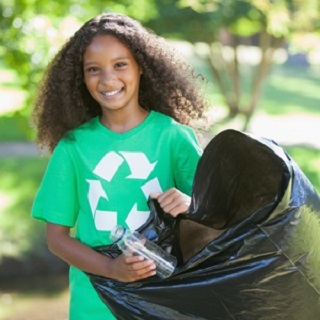From Guest Blogger Dixie Green Machine: Five Surprising Things that Can Be Recycled

Batteries
If you live in California you are probably already recycling your batteries, as it’s illegal to throw away batteries in the Golden State. For the rest of the nation, we may feel guilty about it, but our batteries often end up in the landfill. They don’t have to. Even single-use batteries contain reusable amounts of steel, zinc and manganese dioxide. Municipal waste services will have hazardous waste collections days when you can turn in old batteries, and many businesses offer battery collection points as well. You can even turn your own home or business into a battery collection point using one of the handy mail-away (battery-in-a-box) recycling programs that offer complete kits to get you started.
Beer and Flat Soda
Ethanol reclamation facilities in Kentucky and Ontario (Canada) produce over 6.5 million gallons of ethanol each year from unsold or unwanted waste and residuals from the beverage industry. Waste-derived ethanol converts sugar-based or alcohol-based liquid wastes through fermentation in a process which reclaims more than 95% of the waste product. Not only does this keep it out of the landfills, but the result is an energy resource, an alternative fuel that can take the place of fuels derived from non-renewable resources such as fossil fuels.
Crayons
Yes, you can recycle crayons, and, no, this is not a Pinterest inspired arts and crafts project. The National Crayon Recycle Program accepts shipments of unused and unwanted old crayons. Their most updated information says that so far, crayon recycling efforts have prevented 110,000 pounds of crayons from entering landfills. That’s a lot of crayons!
If you are an arts and crafts person and really want to melt down and recycle your own crayons, that’s also an option. Adult supervision is required, and you will need a double boiler that is not used for food and molds (like are used for molding soap) that can handle the high temperature of the melted wax crayons. You’ll find instructions on several mommy-crafting blogs.
Tires
Tires are not rubber. That is, they are not only rubber, which is why they’ve been difficult to recycle in the past. That’s less of a problem now. Elements of the tires can be broken down and recovered separately. Processes such as cryogenic grinding and ambient shredding turn tires into a product known as “crumb” from which reusable resources are more easily extracted.
The average tire contains five gallons of oil, and shredded tires can be used by electric companies as fuel. Tire-derived fuel (TDF) accounts for 45% of waste tire recycling according to EPA estimates. Recycled tires also become synthetic turf, playground surfaces, road embankments – it’s even incorporated into roadway surfacing where it helps prevent cracking from freezes and gives joggers a little better cushioned surface on which to run.
But how do you actually recycle tires? Regulations and options vary from state to state. Some states even require a permit for tire disposal. Your state’s environmental department or your local waste management services will be able to give you more details. The easiest option is to ask about recycling options for your old tires when you are buying the new ones.
T-Shirts
You may already drop your good-condition used clothing off at Goodwill or your local Rescue Mission, but did you know you can also recycle the ratty looking stuff? Textile recycling converts 2 million tons of post-consumer and pre-consumer (manufacturing scrap) textiles annually. Roughly 12 pounds of clothing per person per year is recycled in the US. Used clothing in good condition is sold here and overseas, and lower graded items are turned into raw materials for the automotive industry, made into furniture, mattresses and home furnishings, or converted into paper and cardboard.
Savvy recyclers can make a bob or two recycling scrap metal and soda cans or old electronics. Do a little checking. You’d be surprised what people can recycle when they put their minds to it. There’s even a company making paper out of cellulose fiber recovered from sheep dung. Of course, this is all in addition to the classic recyclables of glass, plastic, paper and cardboard. Landfills are not our only option, they’re not even our best option in many cases. While not every recycling option may be currently common in your town, there are plenty of ways to up your recycling game.

No doubt we could and should recycle more than we do. However, one must consider the fuel used to get recyclable items to where they can be recycled.